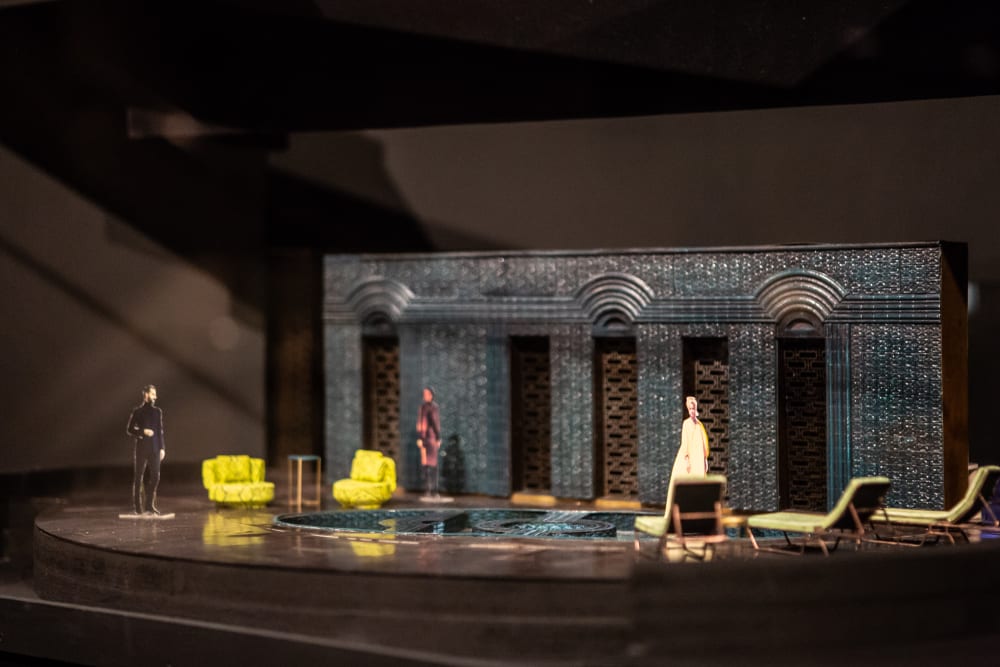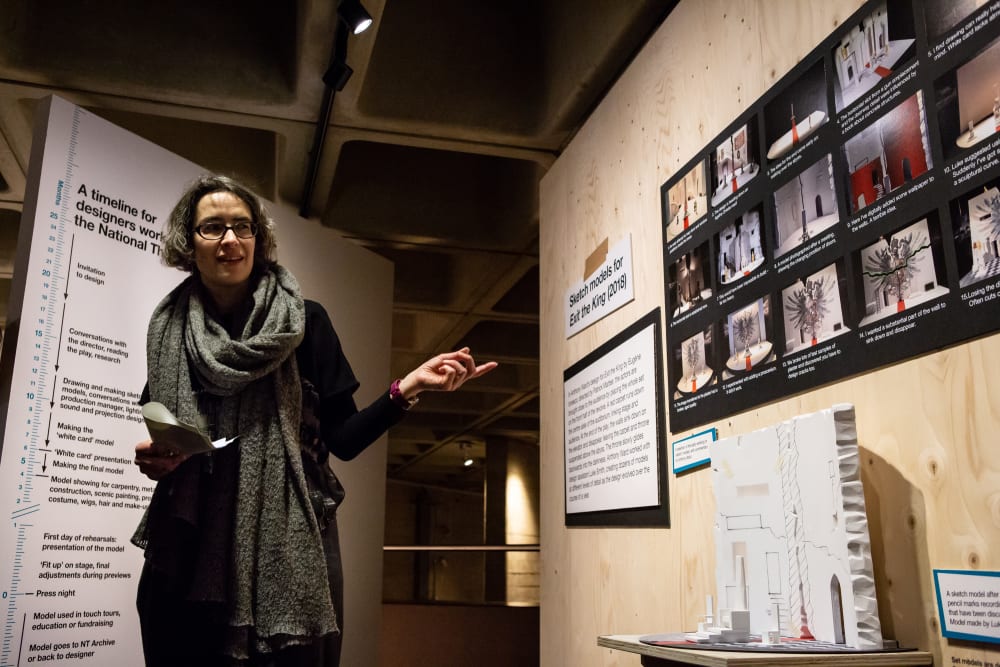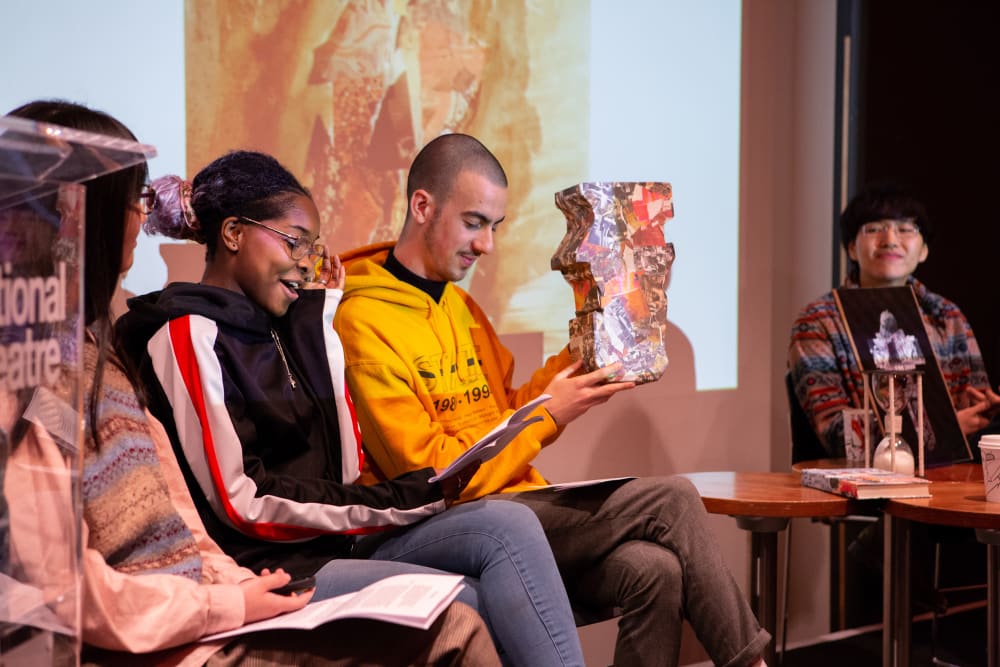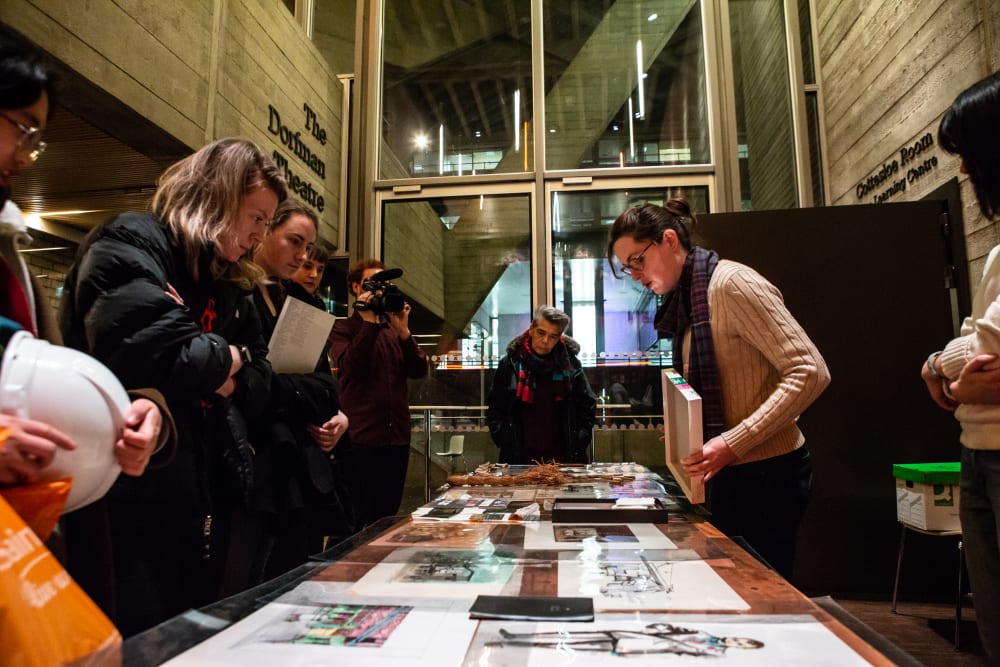This March, Research at Camberwell, Chelsea and Wimbledon will again collaborate with the National Theatre and the Jocelyn Herbert Archive to present Staging Mixed Reality, a one-day symposium considering the practical and creative possibilities of mixed reality and virtual worlds in theatre and performance.
Building on the success 2018's Staging the Real, which focused on the construction and representation of realism in theatre and performance, this second event will consider the ever-evolving field of mixed reality performance. Convened by Dr Matthew McFrederick, Professor Eileen Hogan and Professor Jane Collins, it will explore the new aesthetics being developed through digital possibilities, with talks from leading theatre designers, practitioners and academics as well as one presentation that will be delivered by BA Theatre Design students from Wimbledon College of Arts.

As Professor Jane Collins explains: “The presentation of work in response to the Jocelyn Herbert Archive by BA Theatre Design students from Wimbledon at the last symposium was one of the highlights of the day. I am therefore really pleased that we are going to include a presentation by second year Wimbledon students at this event.”
In order to be selected for inclusion in the 2020 symposium programme, students on the BA Theatre Design course developed presentations this term as part of a dynamic, archive-based research project facilitated by the National Theatre and organised by Peter Farley, who noted: “A series of artefacts related to the theme of the symposium were chosen from the Jocelyn Herbert Archive as a subject for research, exploration and inspiration. The students were supported through tutorials and discussions with former Jocelyn Herbert Research Fellows and the Head of Archives at the National Theatre.”
Each group then outlined why they chose a specific production, what their research had focussed on, how it contributed to scholarship about Jocelyn Herbert and the theme of Staging Mixed Reality’as well as presenting a performative response to the archive. One of these was chosen and the group will present again at the National Theatre in March. Reflecting on the work the students presented, Professor Collins commented: “This year it was a real challenge for the students, moving between digital and analogue worlds, creating their own mixed reality performances, but they responded with great enthusiasm, creative energy and imagination.”


We interviewed BA Theatre Design student Zsofia Sarosi to find out more about her experience of working with the Jocelyn Herbert Archive for this project.
Tell me a little about your work.
I’m a second-year student of BA Theatre Design at Wimbledon College of Arts. We design sets and costumes for performances – mainly theatre-based. I’m passionate about opera, music and contemporary dance and hope to create dynamic sets for performances involving movement.
What first interested you about the research theme ‘staging mixed reality’?
Initially the fact that I like placing characters in unlikely situations or worlds: for example, mythical creatures in modern stories, or fusing different culture’s stories, legends, saints, gods and tales. I find it fascinating. After looking at Jocelyn Herbert’s Archive, however, my teammates and I decided to approach the topic slightly differently.
Which artefacts from the Jocelyn Herbert Archive did you work with? What attracted you to them? How did you respond to them in your work?
We looked at her letters and telegrams, written by and for her. The fact that she chose to keep them in her archive among her sketches and other work made us believe she thought they would inform us about her process and would be an invitation to understand her. It started a conversation about communication, how through her archive she is communicating with us and how forms of communication have changed in the intervening years. We talked about that space where your message is travelling, where you have already said what you wanted to say but it hasn’t reached the receiver yet. Nowadays that space has almost ceased to exist, we can reach people so quickly. We put less effort into our messages as a result of that, in both aesthetics and composition.
We decided to keep our response to the archive intimate and involve the audience, so we talked about letter writing, what it means to us personally to receive hand-written letters. We created and decorated small envelopes so that audience members could “post” a message to another member of the audience. Everyone got to keep something personal and unique, which was the essence of our conversations.
What feedback did you receive from the panel?
We were pushed to take our ideas further next time. Not only to make and use props, which I believe they enjoyed, but to work on placement of the audience, set and artefacts in a more creative way, to stage what we were talking about. It was great to hear such encouraging feedback from professionals at the top of their industries.
How was it different working at the National Theatre to working in your college space?
I feel like having been able to work at the National Theatre’s Archive brought the industry closer to us. Meeting the helpful people who work there and being able to have conversations with academics there gave us a glimpse of what we can expect once we graduate. However, what we all love and deeply value in our college space is our studios and workshops that make creating so easy. We are very lucky to have had the opportunity to use both during this project.
How has this project impacted your creative practice?
It was really helpful in terms of collaboration: learning how to work with other people, how to get your ideas across, how to finalise an idea and make compromises. We were also getting used to public speaking and presenting in front of an audience. It was a great learning experience.

Tickets for Staging Mixed Reality are on sale now for Thursday 5 March 2020.
Tickets: £55 Senior citizen: £40 Student/Under 18s: £15
Discounted tickets are available to UAL Staff and Students (£15/7.50). For a promo code, please email: ccwresearchevents@arts.ac.uk
To book your ticket, visit nationaltheatre.org.uk
For a list of speakers, visit the event page

